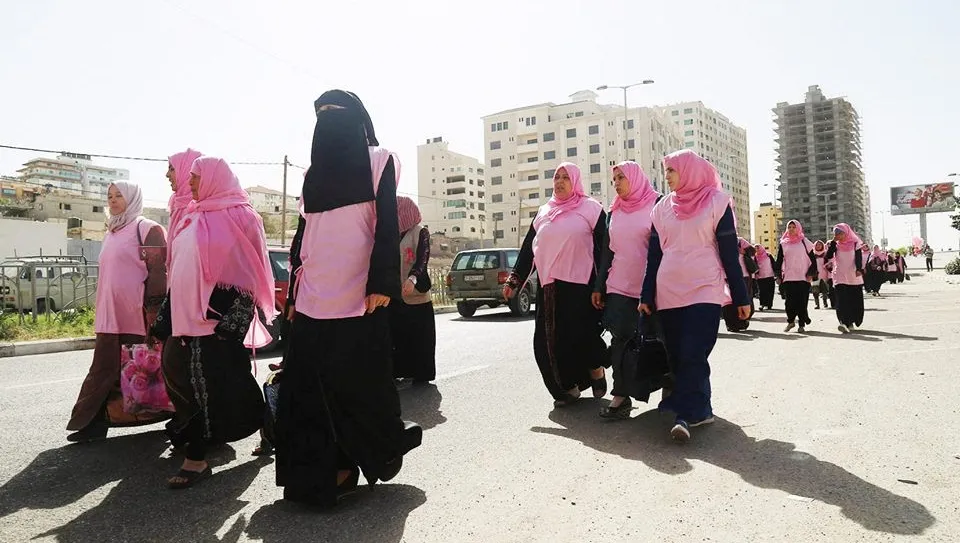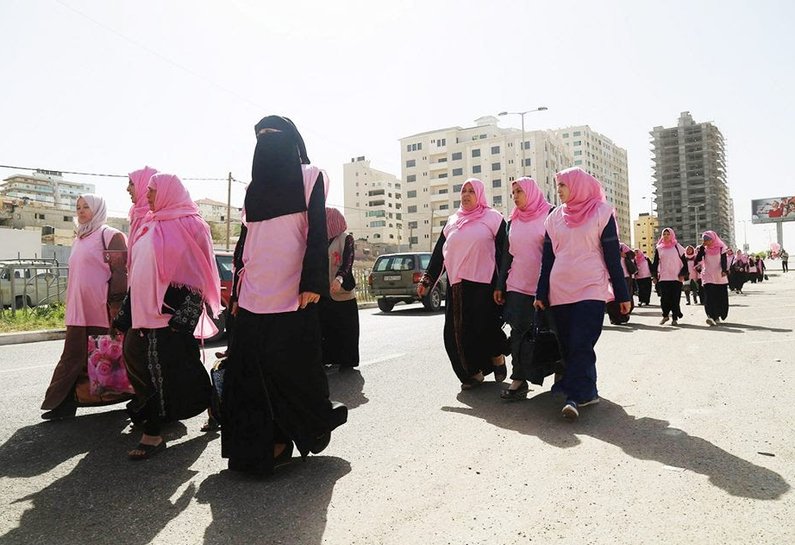Breast Cancer Awareness Month: “The worst part was the uncertainty and waiting"
11 October 2019


In the occupied Palestinian territory (oPt), Palestinian women with breast cancer face many challenges to accessing continuous and effective medical care. Aseel Baidoun, Advocacy and Communications Officer for Medical Aid for Palestinians (MAP) in the West Bank, met with Suad, a Palestinian woman from Gaza, to discuss the many difficulties she has faced as a breast cancer patient.
SUAD’s story:
Suad is 36 years old and lives in Gaza. She was diagnosed with breast cancer in May 2017, but was unable to complete her treatment. “I felt a lump in my right breast. But at that time, they stopped all referrals for non-emergency treatment at most hospitals in Gaza, so I had to pay to have a CT scan at a private hospital. It was expensive, but I had no choice,” Suad said. In April and May 2017, Gaza’s Power Plant (GPP) stopped working due to severe fuel shortages and only the most critical hospital services- such as neonatal intensive care units- were available.
After her CT scan, Suad was sent for a biopsy at a private hospital. She was unable to afford this, so her doctor instead referred her to the women’s health centre in Al Bureij refugee camp, which is run by MAP’s partner, the Culture and Free Thought Association (CFTA). The centre provides free of charge services to women, including medical tests, physiotherapy, reproductive health care, and psychological support. The centre supported Suad to have a biopsy and other required tests. These revealed she had stage two cancer.
In June, Gaza’s Power Plant resumed partial operation so Suad was able to undergo a mastectomy (the surgical removal of a breast) and received eight chemotherapy sessions at Al Rantisi Hospital in Gaza. She was also referred to the Augusta Victoria Hospital (AVH) in East Jerusalem for radiotherapy, a service unavailable in Gaza.
“In February 2018, I applied for an Israeli permit to leave Gaza. The appointment was in late February. I waited till April, but the application’s status was still pending. I did not lose hope and I applied again. And again. I contacted all the human rights organisations in Gaza asking for immediate support. They did all they could, and finally in July, the status of my application went from pending to declined. My doctor told me that the radiotherapy is no longer effective, because it must be within six months after the last chemotherapy session. I knew I had a great risk of recurrence. But what can I do? I believe in God, and I am not scared. If God wants me to get the cancer again, then I am ready for it,” Suad stated.
“During three of the six applications I had my father, who is 71 years old, as my companion. Then I thought maybe I should apply without a companion and go alone. But the application remained unsuccessful. The worst part of the application process was the uncertainty and waiting. Every time I applied, I had hope. I used to pack my bag at night and pray to God to get me to AVH. My younger brothers used to kiss me and hug me in the morning before going to school, thinking that I will be in Jerusalem when they come back. But when they came home, they found me watching TV, speechless, with my bag unpacked.”
In 2018, more than 10,000 scheduled medical appointments were missed by patients from Gaza due to denials and delays to their exit permits by the Israeli authorities. The year before, according to the WHO, Israel approved just 54% of exit permits for patients referred for treatments outside Gaza. This is the lowest rate on record, down year on year from 92% in 2012. In 2018, just 61% of permits were granted, the second-lowest annual rate on record. Forty-six people from Gaza with cancer died in 2017 after missing scheduled appointments due to denials and delays from Israel.
Suad’s sister was also diagnosed with breast cancer in 2018. She was able to complete her treatment at AVH and travelled with her father as her companion. “I am relieved that at least one of us received the radiotherapy sessions, but isn’t it absurd? We are sisters, living in the same house with the same disease, she was able to get the Israeli permit, and I didn’t,” Suad said.
Suad continues to go for check-ups in Gaza to monitor whether the cancer will return.
This story is part of a collection of accounts of Palestinian women affected by breast cancer and the many difficulties they face accessing care.
Name changed to protect identity